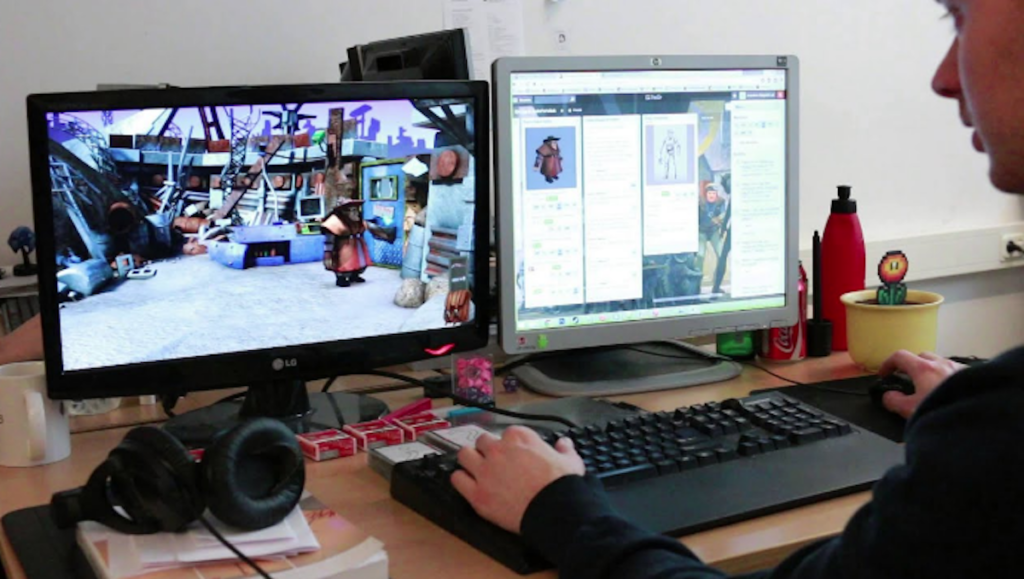With ever greater internet penetration and increasingly sophisticated technology delivering incredible graphics experiences, the video game industry is going from strength to strength. Just as business technology is evolving, so too is that behind the experiences being delivered to gamers. In this article, we’ll look at how video game translation is further enhancing that experience, along with the role that a translation agency still plays in the midst of all this technological progress.
Who should localize your game: a translation agency or a freelance translator?
Game developers don’t usually have a single audience in their sights when they create what they hope will be the latest craze. Gaming is a global pastime, which means those producing games have the potential to reach a huge audience – provided they get their video game translation right.
And this is where a word of caution comes in, with game developers having to choose between a translation agency, a freelance translator and a machine-based solution. The advantage of working with a translation agency is that you have a team of professionals in charge of your project, rather than a single individual, who by definition can become a single point of failure in your project plan. Machine translation, on the other hand, relies on AI and machine learning models to convert text from one language to another. Ofer Tirosh, CEO of translation agency Tomedes has often spoken about the value of human translators when it comes to working with business technology and gaming technology. He comments:
“Machine translation has come so far in recent years, but it still lacks the nuance and the ability to localize content that humans can deliver. With video games, this localization work is essential if the developer wants to truly connect with international audiences. Translation alone isn’t enough, even when it’s of the highest quality.”
How to build the ideal gaming experience for multilingual audiences
This localization process is where a translation agency really comes into its own. On top of the video game translation, which converts the dialogue, instructions and other elements of the game into the target language, localization takes a deeper look at how the game will appear to new audiences. It considers how the cultural aspects will resonate and which elements will need changing in order to meet consumers’ expectations and deliver an engaging gaming experience.
The localization process also takes care of the practical details – everything from coding to currency symbols – which need to be addressed in order to deliver a seamless gaming experience.
The translation itself also needs to be top notch if a game is to woo audiences around the world. We may look back fondly on Zero Wing’s “All your base are belong to us” from the Megadrive days, but gamers now have far more choice when it comes to what to spend their money on. Mistranslations that drive down the quality of the player experience can have a negative impact on sales, just as poor localization can.
Developers also need to factor in voice acting as part of the translation process. This isn’t a service that every translation agency provides, so if you have a game that you want to succeed internationally, it’s important that you discuss this early on in the video game translation process. Bad voice acting can hurt a game’s reputation (as online comments about Watch Dogs: Legion attest), so planning for this from the outset of the development work is key.
In fact, writing the game’s dialogue with voice actors and an international audience in mind can do much to ensure that the final translation works particularly well. It can help to iron out any linguistic quirks that are too culture-specific and hard to internationalize. This helps to make the video game translation process easier when the time comes.
Video games in a global context
Engaging a translation agency to work on your video game translation isn’t cheap. However, the benefits can be more than worth the investment.
How much is the video game industry worth? The global video game market was valued by Grand View Research at USD 162.32 billion in 2020. That’s an awful lot of revenue up for grabs. Not only that, but the sector is expected to grow at a Compound Annual Growth Rate of 10.5% between the years 2021 and 2026, taking it to a total value of USD 295.63 billion.
Consider, too, that there are now one billion more gamers than there were five years ago. Fortnite alone has racked up over 250 million registered users. Plenty of reason to build video game translation into your game development plans!
The next billion gamers are out there just waiting to connect. A internet access continues to grow and whole new markets come online, it is in developers’ hands to reach out to them and showcase the joy that properly localized and well translated games can deliver.

